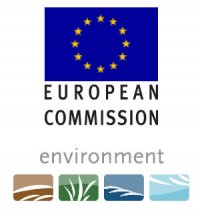During a trip to Brussels in October, I had the pleasure of meeting with Dr. Noriko Fujiwara from the Center for European Policy Studies, as well as Peter Zapfel, head of policy coordination in DG Climate Action at the European Commission. I took the opportunity to ask general questions about the state of emissions reductions in Europe, as well as which sectors they felt held the greatest amount of promise for emissions reduction. While there was a consensus between the two of them on many issues, there were some notable departures as well. The greatest area of agreement was that there is much more that can be done to reduce emissions in Europe. Between the discussions we had, as well as the helpful documents that these two experts provided, I feel that I have a better grasp of the environmental priorities of the European Union.
One of the most interesting areas of discussion was the impact of the European Union’s economic downturn and slow move out of recession. Both of them conceded that the slowdown of the economy has affected the balance between growth and employment and climate concerns. Dr. Fujiwara felt that conditions of austerity would cause many EU states to divert more and more money away from abatement schemes, as national budgets continue to shrink. Additionally, she felt that many of the poorest nations in the EU are also the ones that have had to slash their budgets, and this only exacerbates the challenge. Zapfel felt that the greater effect would be that the EU Carbon Market would have to adjust its incentives schemes. This may lead to an increased gap between the abatement efforts of the richest and poorest nations of the EU.
The much more cynical side of the discussion, however, was the way in which the Euro crisis has helped the EU reach many of its targets. One of the simplest ways of reducing levels of emissions is with lower economic output. Factories that are shut down tend to be very carbon neutral. This solution is not satisfying except to the staunchest environmental extremists, and their sarcasm alluded to the real issues that a poor economic environment is creating for everyday people. Dr. Fujiwara felt that it remains to be seen whether citizens will approve of the way in which the EU is reaching many of its targets. Zapfel felt that the crisis would have major implications for the supply-demand balance in the carbon market and would lower the carbon price.
Dr. Fujiwara and Zapfel gave different but complementary answers to my question of which sectors in the EU look most promising for emissions reduction. Dr. Fujiwara felt that the greatest potential was with building design, as Europe has many old buildings that are not up to current environmental standards. Zapfel instead identified the areas he felt were most challenging, which are agriculture and transportation. His reasoning was straightforward, as it is impossible to mitigate demand for food and not much easier to discourage freedom of mobility.
Zapfel also identified the prevailing divergence in per-capita income levels across the European Union as one of the main political challenge to ambitious emissions reductions goals. He said that one of the strongest correlations for commitment to emissions reduction was GDP per capita, and that the poorer states of Eastern Europe can’t be expected to care about emissions reduction goals as much as the advanced economies of Western Europe. He felt that much of the support for emissions reduction in Eastern Europe would come from Western Europe, especially in the short run. He conceded that it remains to be seen whether the EU will achieve convergence on this issue or not.
Lastly, I raised some Germany-specific questions due to its position as the largest economy in Europe. The first was about the effects of Chancellor Merkel’s decision to close down all German nuclear power facilities. Dr. Fujiwara raised concerns about the inconsistent and unpredictable nature of many renewable resources, as solar and wind sources often fluctuate in their day-to-day output. She felt that Germany would have to fire up many of its old coal power plants to compensate.
These meetings have provided a solid foundation for our research on EU emissions. I intend to follow up with these contacts, as well as their organizations, and gain their insights throughout the entire research process. This should prove invaluable for both my European Union and my transportation sector portfolios.




Leave a Reply